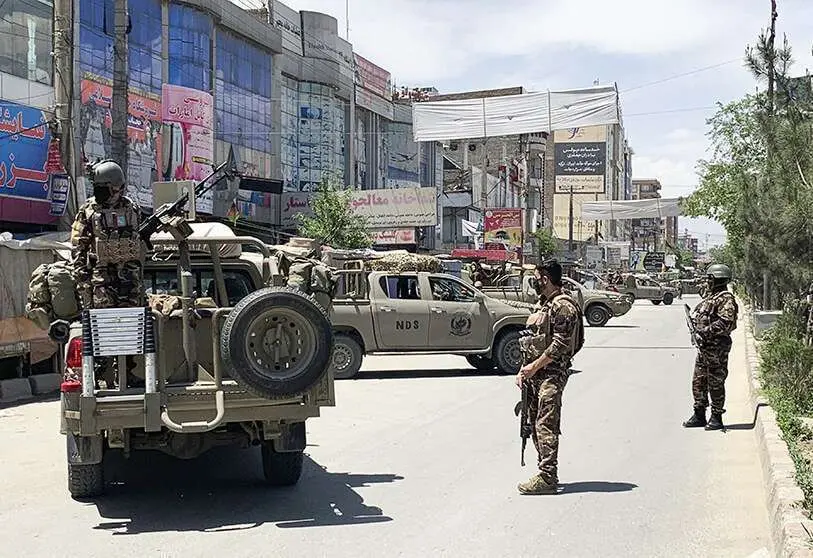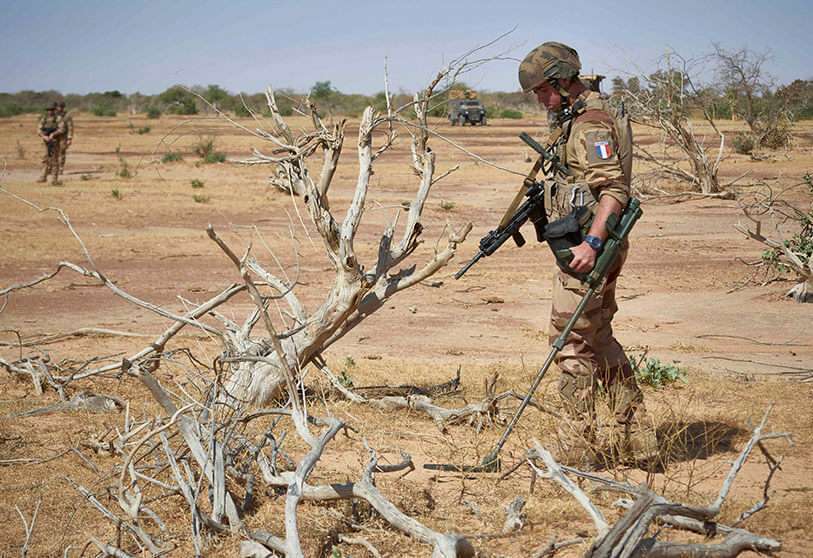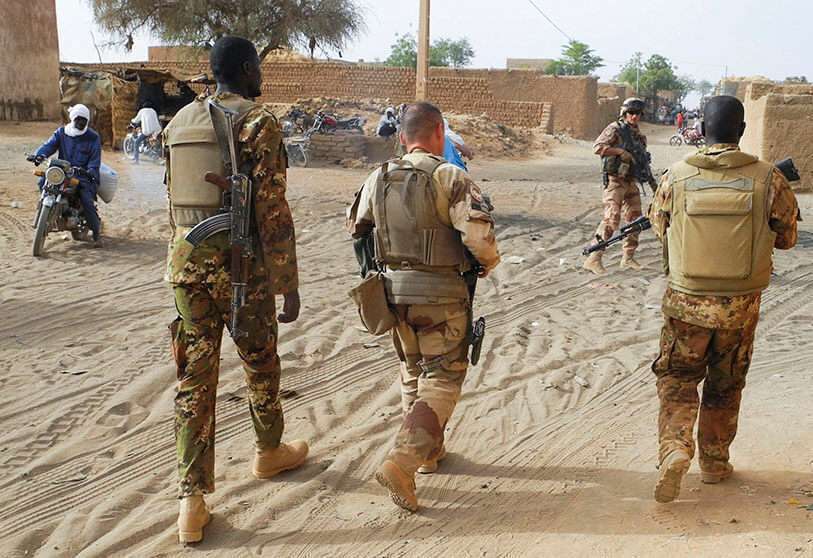The threat of jihadist terrorism looms over Afghanistan and the Sahel region

The pandemic caused by COVID-19 has redrawn the global geopolitical landscape. The impact of this health crisis has had a direct effect on the economy and tourism, but also on the evolution of jihadist terrorist organisations. This is the view of the six-monthly report on jihadist activity for 2020 prepared by the International Observatory for the Study of Terrorism, which was published on Monday.
The jihadist groups have taken advantage of the instability and inequality caused by this crisis to transform their dynamics of action and increase their influence in certain territories where, until now, their presence was minimal or non-existent. The measures adopted by the governments of various states to reduce the spread of this pathogen have created the perfect breeding ground for the expansion of these terrorist groups, which have been helped by the concentration of local troop efforts on containing the pandemic and by the timely withdrawal of soldiers destined for international missions, as this report points out.

France and the United Kingdom - this document warns - have witnessed the transformation that these processes of radicalisation have undergone, as they have suffered terrorist actions perpetrated by individuals who have acted autonomously. In Spain, on the other hand, anti-terrorist police operations have not ceased to take place despite the fact that a large part of the country was confined. The Mossos d'Esquadra, for example, arrested two Algerians aged 41 and 43 in Barcelona this July as part of an operation against Jihadist terrorism. Those arrested were preparing to carry out an attack, according to investigative sources consulted by El Periódico de Cataluña.
The International Observatory for the Study of Terrorism believes that a new era began with the military defeat of Daesh, since the global jihadist movement has become increasingly decentralised, as demonstrated by the "alqaedisation of Daesh himself", they have warned. Thus, the report states that the decentralising trend that had already been marked in 2019 has been accentuated during the last months, due to the increase of the protagonism of its affiliated groups and regional franchises, such as the Islamic State of the Great Sahara (EIGS), the Islamic State of West Africa (ISWAP) or the Islamic State of Central Africa (ISCAP), established in different geographical areas.

The six-monthly analysis prepared by OIET also warns that "the influence of Daesh on local insurgent movements has ended up giving a boost to the most radical approaches", specifically to the ideological current of jihadist Salafism that has been quietly spreading in countries such as the Democratic Republic of Congo or Mozambique.
In the last six months, 4,826 people have lost their lives worldwide to jihadist terrorism in at least 30 countries. Terrorist organizations have seen the coronavirus as an opportunity to increase their influence as has happened, for example, in Afghanistan where the Taliban have positioned themselves as "the only actor who cares about the welfare of citizens," states this article. Something similar occurs in West Africa, where jihadist organizations have taken advantage of the opportunity to expand into new territories. OIET has shown its concern about the increase in attacks of this kind, which have risen from 757 in the first half of 2019 to 1,013 this semester. According to this document, the most affected regions have been Afghanistan and the Sahel, one of the areas most affected worldwide by the terrorist phenomenon. However, there has also been a considerable decrease in the number of victims, with the number of deaths falling below 5,000.

According to the biannual report prepared by OIET, Syria and Iraq are the countries where violence has been most reduced, in contrast to the Western Sahel where the data are - according to the organization - "very alarming". The conclusions of this document emphasize that of "the top ten countries with the highest number of deaths, eight of them belong to the southern half of the African continent, all of them concentrated in the Western Sahel region, D.R. Congo and Mozambique".
The report says that "the Sahel region has established itself as one of the world's main hotbeds of terrorism". The coronavirus has created the perfect scenario for armed groups to gain power and increase their influence in the region. "These organizations have demonstrated strong operational and intelligence capabilities that allow them to carry out large-scale attacks on military installations and civilian settlements," they said. According to this document, this situation causes these organizations to continue their territorial expansion towards the south or west, as we have seen in recent months, with the increase of attacks in nations such as Burkina Faso, Mali and even Niger.

In this scenario of instability, we must also take into account the increase in political, social and economic tensions which, although they already existed, have intensified as a result of this health crisis. OIET has explained that these factors have a very direct relationship with the terrorist phenomenon, since "armed groups take advantage of citizens' mistrust and discontent with the authorities, presenting themselves as an alternative to governments and offering economic opportunities and basic services that the latter do not provide in certain remote regions, thus gaining the support of the population".
In this context, the role played by the governments of the Gulf of Guinea in dealing with this phenomenon is essential in addressing the terrorist threat. However, it should be noted that countries such as Ghana and Togo have not recorded any attacks, although there is a presence of terrorist organizations, from Burkina Faso. "It is vitally important that the authorities regain the confidence of the population and fight to eradicate areas of marginalization where the state has virtually no presence, generating a widespread feeling of abandonment among local society," they stressed.
OIET has also stressed the need to end "the lack of impunity of national armies". The report concludes that these dynamics allow us to predict that in the near future Afghanistan and the Sahel will encompass the main epicentres of activity and have warned that Daesh is waiting for the right moment to reappear in Syria and Iraq. And finally, they have urged Europe to analyse what is happening inside the prisons, places that they have described as "important centres of radicalisation", without leaving aside the returned combatants who, for one reason or another, want to return to their countries of origin.








